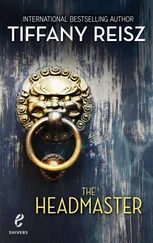“Surely, the Ministry of Education would not wish to diminish English instruction time when all of our students already speak Vietnamese,” said Percival. Of course, many of the students at the Percival Chen English Academy were in fact of Chinese descent and spoke only basic Vietnamese, like their headmaster.
“We have the utmost of patriotic motivations,” said Mak. “The American officers whom I know often tell me that they need—”
“No doubt,” said Mr. Tu. “What is your tuition now?”
“I would have to check,” Percival countered, anticipating price negotiations.
Mr. Tu rubbed the amber bottle with his palm, and placed it, along with the cigarettes, in his desk drawer. From his bookshelf, he plucked a bottle of Otard, and poured three glasses. Lifting his glass to his lips, Percival smelled and then tasted a cheap local liquor rather than the promised cognac. Mr. Tu said with a casual shrug, “I will make inquiries. Further conversations might be required, with my chief, and possibly above him.” Mr. Tu looked down. “So you should ask yourself, are such conversations worthwhile? This is not an easy matter.”
“But what would make it easy?” said Percival, undeterred, preparing already to balk at a price and counter with half.
“Hard to say.”
“Roughly.”
“I don’t know the price,” said Mr. Tu.
“Your best guess.” It was better to get a number to start the discussion rather than leave empty-handed.
“Or even if it is possible,” said Mr. Tu, and stood. “I am a humble fonctionnaire . It may be beyond me. As men of learning, you know that some answers are more complex than others.”
“I see,” said Percival. This did not seem like mere negotiation of price.
“That is our new ministerial advisor,” said Mr. Tu, indicating the new photo. “Thuc is below the minister in theory, and above him in reality. He is very patriotic. Prime Minister Ky chose him personally to oversee education.” He tapped the arms of the chair and looked from Percival to Mak.
Mak stood, smiled graciously, and said, “Thank you, Mr. Tu, for your time.” He leaned towards the desk and said, “If there is no solution to be found, there is no need to remember that we asked.”
Mr. Tu nodded. “Don’t worry. It would serve no one.”
Percival stood, and they left, closing the door themselves as they went into the hallway.
As Han Bai drove them back along the road to Cholon, which was now quiet near midday, Percival said to Mak, “You had nothing else to push him with? Some favour he owes us?”
Mak turned to face Percival. “To what end? Mr. Tu spoke clearly—this policy is a patriotic and political issue. You know that some in Saigon dislike the Chinese-run English schools in Cholon.”
“Because our graduates get the American jobs.”
“That ministerial advisor is Colonel Thuc. He was just transferred from the Ministry of Security and Intelligence.”
“I suppose that was why those quiet police were delivering educational directives.”
“It may prove unwise to attract attention over this issue, hou jeung .”
For the rest of the trip home, they sat in thick silence. What else could Percival say, when Mak’s judgment was always sound? He always knew what had become important of late in Saigon.
By the time they returned to Chen Hap Sing, the morning students were gone, and the afternoon students had begun their lessons. Dai Jai had left for his Chinese classes at the Teochow Clan School. Percival went to his ground-floor office, cooler than the family quarters at this time of day. On his chair, Foong Jie had hung a fresh shirt for the afternoon. On the desk, she had put out a lunch of cold rice paper rolls and mango salad. He shut the door, ate, removed his crumpled shirt, tossed it on the seat of the chair, and laid himself down for his siesta on the canvas cot next to his desk.
As Percival’s breathing slowed, the blades of the electric ceiling fan hushed softly through stale air. On each turn, the dry joint of the fan squeaked. The fan had been this way for a long time, and Percival had never attempted to lubricate it, for he liked to be tethered to the afternoon. Only half-submerged beneath midday heat, he was not bothered by dreams. After some time, he heard a thumping. At first, he ignored it and rolled to face the wall. The noise continued, and then a voice called, “Headmaster!” It was Mak.
Percival propped himself up on an elbow, his singlet a second skin of sweat, his eyes suddenly full of the room—the grey metal desk, the black telephone. A gecko at the far upper corner of the room looked straight into Percival’s eyes, limbs flexed.
“ Hou jeung! ” A fist on the door.
“Come in, Mak.”
Mak entered, shut the door, and stood by the cot for a moment, as if he found himself a little wary of actually speaking.
“Please, friend. What is it?”
“I have heard something worrisome,” Mak said. “Chen Pie Sou, it is something that your son, Dai Jai, has done.”
“Involving the girl?” said Percival, angry already. Had Dai Jai defied him further?
“No.”
Mak explained that at the start of the afternoon class at the Teochow Clan School, when Teacher Lai had announced that she would begin the newly mandated Vietnamese lesson, Dai Jai stood up and declared that as a proud Chinese, he refused to participate. Mak said, “Dai Jai’s classmates joined him in this protest. Each student rose, until the entire class stood together. Then, Dai Jai began to hum ‘On Songhua River,’ and others joined in. Mrs. Lai was frantic, but they wouldn’t stop.”
“How does Dai Jai even know that old tune?”
“Finally, he walked out, and the class followed him.”
“Where is the boy now?” Percival rubbed his eyes.
“I haven’t seen him,” said Mak. Then, speaking deliberately he added, “I got all this from Mr. Tu. In Saigon. He has heard of it already, and wished to warn you. They have eyes in all the schools.”
Percival stared at his friend. He had heard and understood Mak immediately, all too well. The delay was in knowing what to say, to do. If Mr. Tu knew, then someone at the Ministry of Education was already writing a report.
“Mak, you know what happens in Saigon these days. Tell me, are they making arrests at night or in the day?” During the Japanese occupation, the Kempeitai preferred to seize people at night and behead them during the day in public view. Before and after the Japanese interlude, the French Sûreté usually made arrests during the early part of the day. The bleeding, bruised person would be left on the street late in the afternoon if a single interrogation was sufficient, so that the officers could make it for cocktails at the Continental patio. If more was required of the prisoner, he or she would disappear for months, years, or would never be seen again. Now, the Viet Cong liked to work at night. They crept into Cholon across the iron bridge from Sum Guy and would kidnap someone for ransom, or lob a grenade into a GI bar before disappearing into shadows. Percival found that he could not think of the habits of the Saigon intelligence.
“They make arrests whenever they feel like it,” said Mak quietly.
“Where is Dai Jai?” said Percival, his voice pitched high. “They can’t have found him so quickly.”
“You don’t think so?” Mak caught himself. “No. Of course not.”
Rays of light pierced the small gaps in the metal shutters. Dots and slashes. Percival struggled to pull on his fresh afternoon shirt, the starch sticking to his skin.
“We will have to hire a Vietnamese teacher immediately,” said Percival.
“Clearly,” said Mak.
Percival was about to go look for Dai Jai himself, but Mak suggested that he stay at the school. If the quiet police visited, the headmaster should be there to deal with it. Percival sent the kitchen boys out to help Mak look for Dai Jai, not telling them why. He stood at the front door, scanning the square for either his son or a dark Ford. He stalked his office, glared at the phone. Finally, late in the afternoon, Percival heard one of the kitchen boys chatting amiably with his son in the street, both of them joking in Vietnamese. Percival heard the metal gate clang, then whistling in the hallway. His relief gave way to anger as he shouted to summon the boy. Dai Jai came to the door. “What is it, ba ?”
Читать дальше












